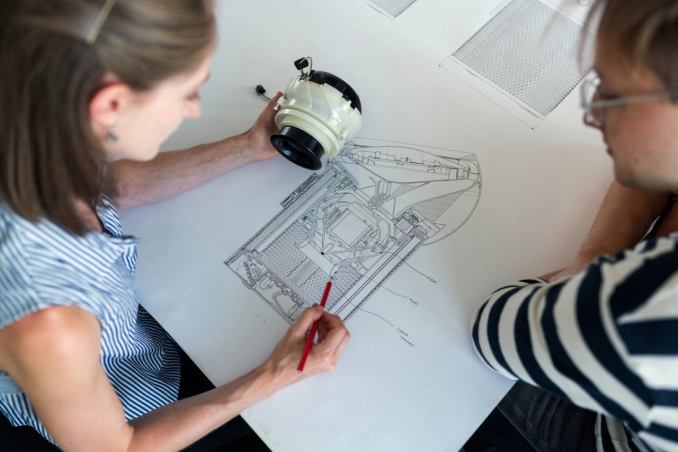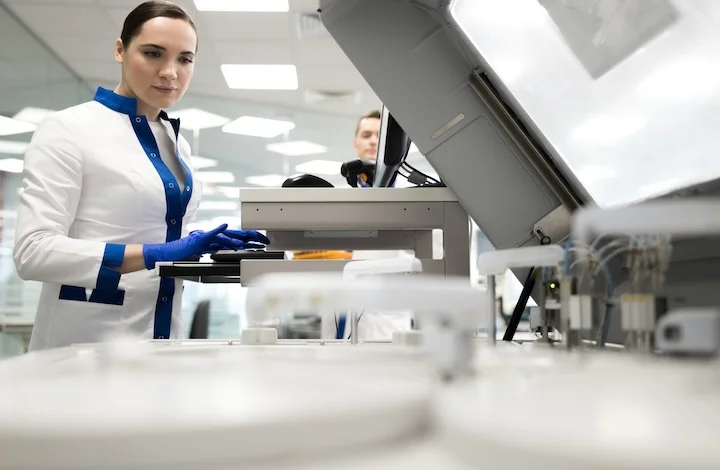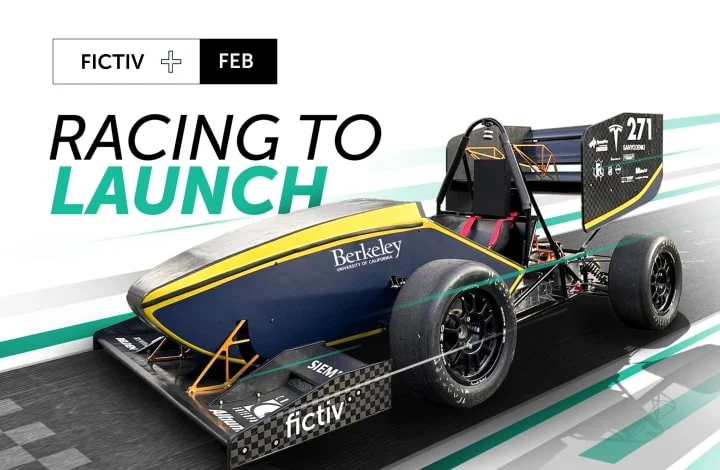About the team
Industry: Robotics
Product: Animatronics, robotics, Proteus platform
Location: Acworth, Georgia
Why Fictiv
Customer challenges: Needed faster turnaround and lower costs than in-house or larger machine shops offered.
Capabilities Leveraged: 3D printing, injection molding, CNC machining.
Result: With Fictiv, Catalyst gained greater agility, faster profits, and the ability to offer 20% lower prices than competitors, 2X faster.
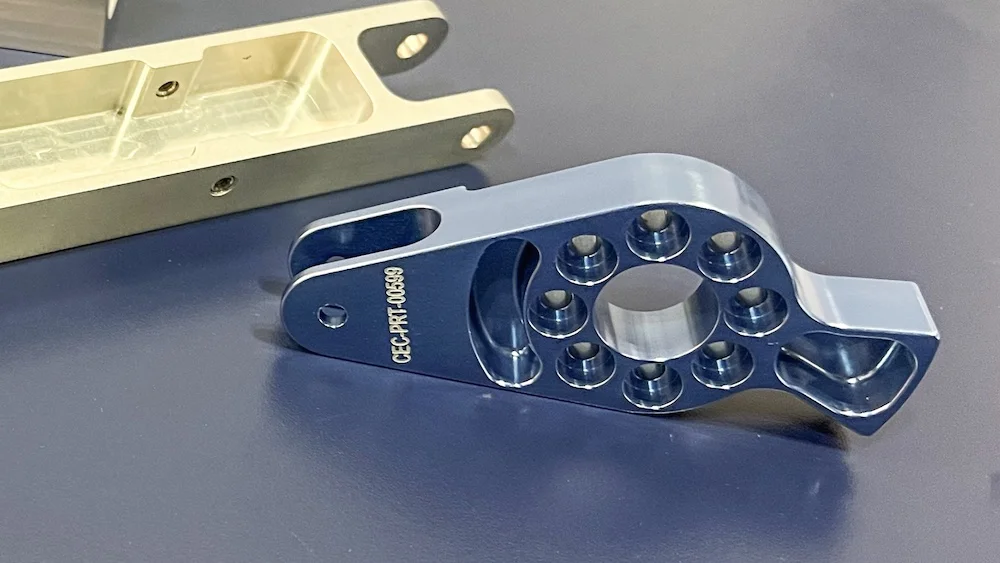
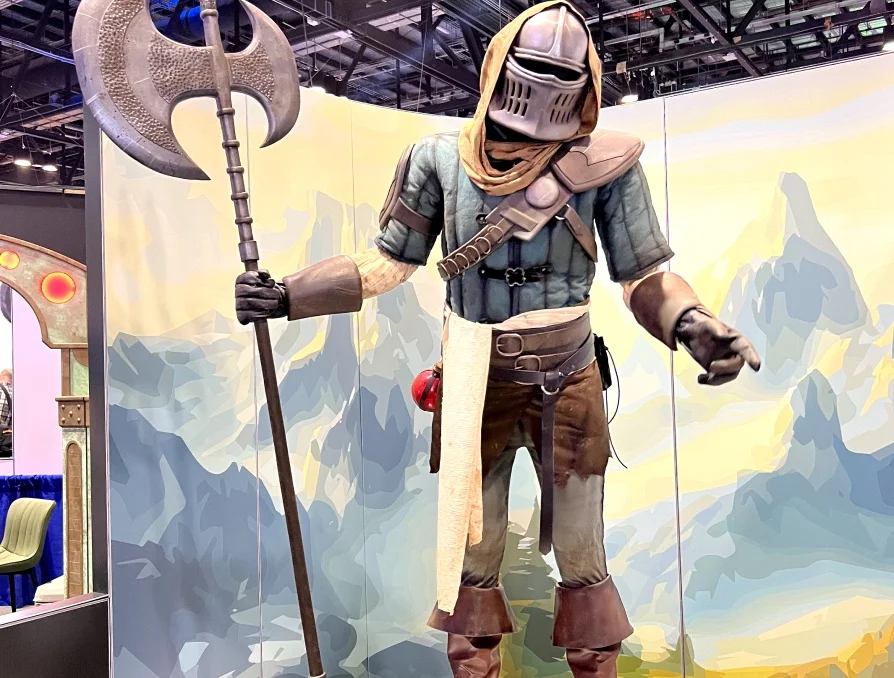
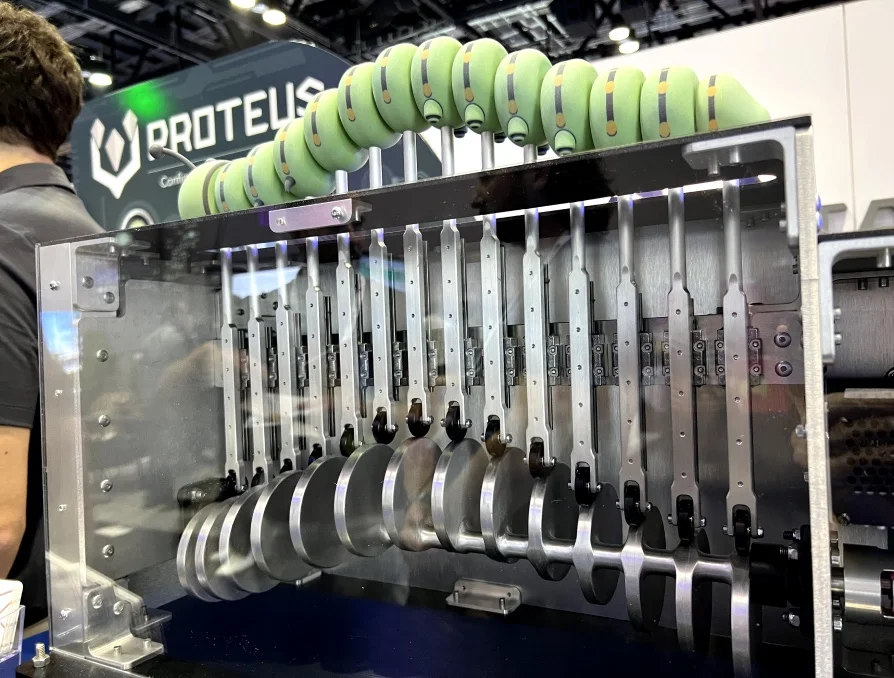
Ever wonder how the animatronics featured in “Hagrid’s Magical Ride” or “Pirates of the Caribbean” are made? These complex creatures are imagined and then designed by engineers like Brian Burns, who co-founded Catalyst Engineering with Rebecca Burns in 2021.
From the start, Catalyst had a clear vision: Build high-quality, creative, and well-designed animatronics, robotics, and show action equipment that is reasonably priced and performs exceptionally, without the inefficiencies they noticed in larger companies.
Catalyst also recognized the opportunities for animatronics globally and saw real efficiency problems with the old approaches to designing and manufacturing their products. Brian Burns explains, “We keep our core techniques, competencies, and abilities
in-house and partner with other vendors like Fictiv for the rest. This keeps us lean and efficient, without sacrificing efficiency or capacity.” By all accounts, this plan is working. They’re quickly becoming a trailblazer in the robotics and animatronics space.
We keep our core techniques, competencies, and abilities in-house and partner with other vendors like Fictiv for the rest. This keeps us lean and efficient, without sacrificing efficiency or capacity.
– Brian Burns, Catalyst
Before Fictiv, Catalyst was accustomed to long lead times and expensive prototyping for its complex, highly unique animatronics. With in-house manufacturing, the delays and larger teams meant siloed efforts and longer lead times, which didn’t work for Catalyst. Smaller shops weren’t doable either. According to Catalyst Co-founder Rebecca Burns, “When a project goes through a smaller shop, it’s easy to bottleneck the shop. With Fictiv, the bandwidth is enormous, so capacity is available.” Fictiv’s highly vetted global network of manufacturing partners also enabled them to get matched to the right supplier for their requirements quickly.
With Fictiv, the bandwidth is enormous, so capacity is available.
Rebecca Burns, Catalyst
Unique Animatronics Design and Manufacturing Challenges
The complexity of Catalyst’s designs posed unique challenges. According to Brian Burns,“We joke about our designs being difficult. Typically, if we get 25 parts for a robot and put it all together, two or three of those parts require reconfiguring, either because something came up during assembly or the customer needs something changed. Fictiv allows us to react quickly, get those modifications, and get the manufacturing process started quickly.”
Fictiv allows us to react quickly, get those modifications, and get the manufacturing process
– Brian Burns, Catalyst
started quickly.
While design for robotics and animatronics share many components and processes, animatronics require an added level of complexity to achieve a specific organic shape, often presenting complex challenges for fitting components and mechanisms into tight spaces. Unlike robotics, where space is not always a key factor, animatronics are designed to achieve the look of a creature or character.
In addition to bespoke customer projects, Catalyst chose to work with Fictiv to manufacture many components that go into their Proteus humanoid platform. The Catalyst team designed these parts to fit with mating parts seamlessly, ensuring a smooth assembly process.
To build Proteus, they used CNC machining, a good choice for manufacturing parts with a high level of strength and complexity.
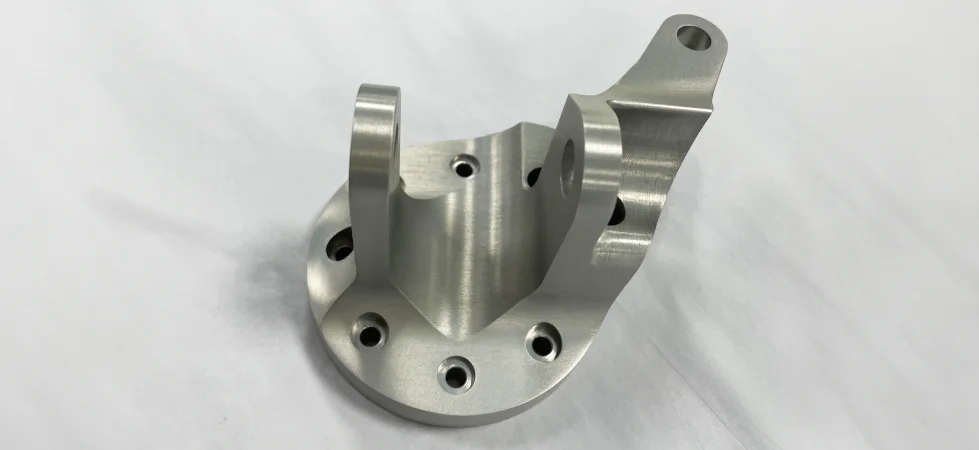
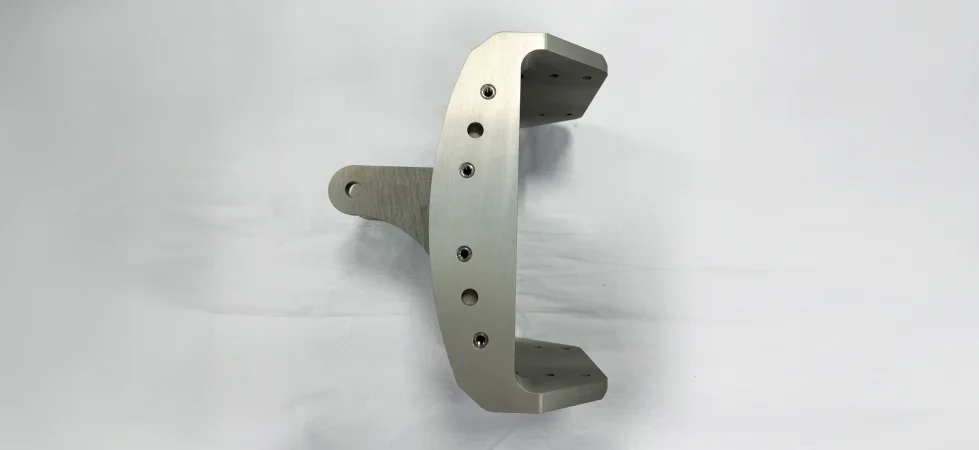
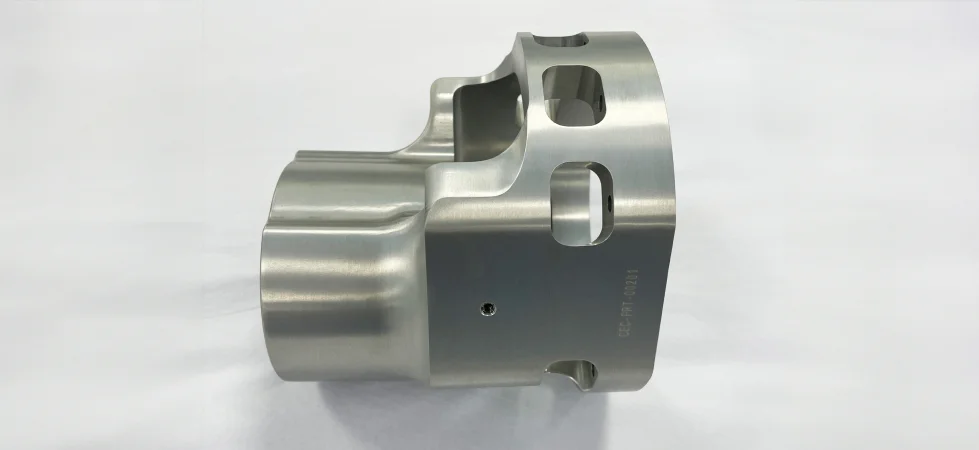
Animatronics like Proteus require tight tolerances and parts that can last millions of cycles of repeated wear. Catalyst chose aluminum due to its durability, strength, and wear resistance. These CNC-milled 7075 aluminum components with a Type II clear anodized aluminum surface finish feature several holes throughout geometrically complex surfaces.
Sourcing Complex Parts with Ease
In addition to solving design challenges, Fictiv helped source the right supplier for their custom programs. Fictiv’s highly-vetted supplier network, on-site quality engineers, and digital platform meant Catalyst didn’t need to search out the right supplier for each custom part manually. Fictiv did the heavy lifting so they could focus on design and innovation.
Catalyst also leveraged Fictiv’s design for manufacturability feedback (DFM) to try new configurations and tolerances, as well as new creatures with unique capabilities. For iterative design processes like those required by animatronics, this design guidance helped Catalyst innovate without limits.
Additionally, the Fictiv platform enabled them to update customers on timelines as the projects evolved. According to Catalyst Co-founder Brian Burns, partnering with Fictiv “empowers us with swift prototyping and manufacturing capabilities, enabling us to offer our customers precise timelines and cost estimates. This ensures we deliver timely and cost-efficient solutions.”
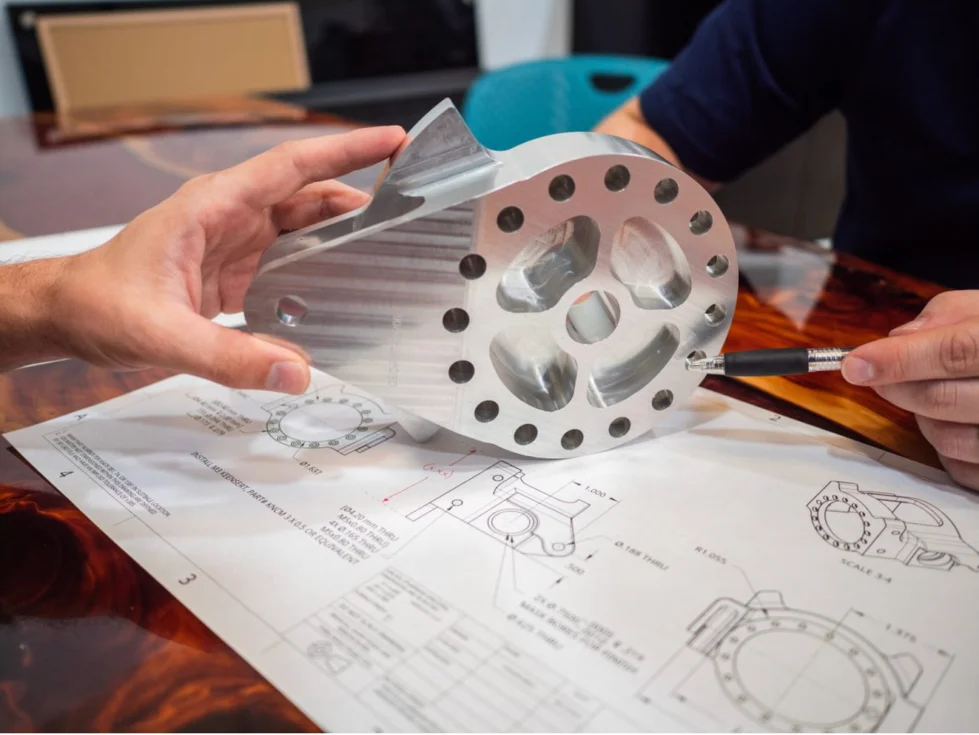
Strict regulatory requirements added another level of complexity. Some of Catalyst’s projects required high safety factors to meet specific regulatory standards and requirements. With Fictiv’s highly vetted network of global manufacturing partners, backed by SOC 2 Type II compliance and ISO 9001 quality certification, Catalyst had confidence their intellectual property was protected, their data was secure, and their manufacturing partner was compliant.
Lowering Costs. Saving Time.
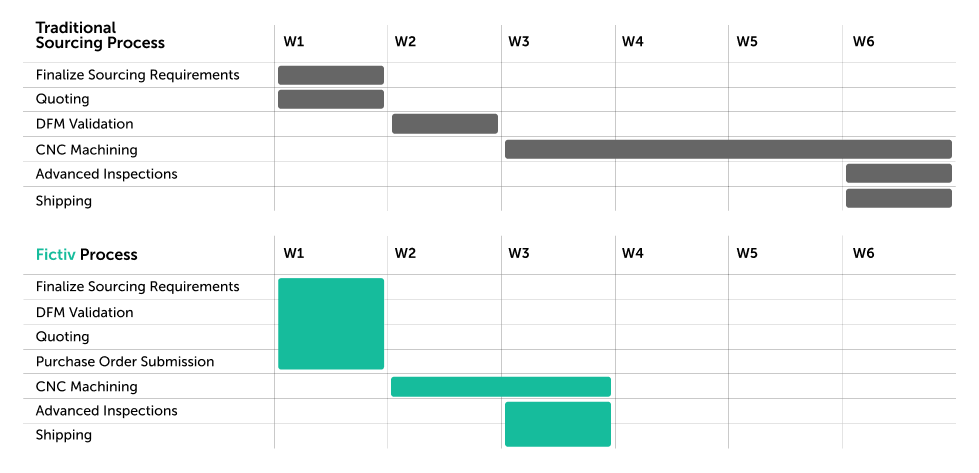
To address some of the common challenges of animatronics, Catalyst created Proteus, a configurable humanoid platform used for tradeshows, show action, and theme park customers that can be tailored for their unique projects. Since most designs are manufactured as one-offs, Proteus helps speed up the design-to-delivery process. The partnership with Fictiv allows Catalyst to accelerate project timelines and deliver figures to customers twice as fast as competitors. Now, Fictiv is a strategic manufacturing partner—from design for manufacturability guidance to sourcing the right manufacturing partners for their unique designs to the digital platform that enables them to stay agile and scale.
While animatronics projects typically take 18-24 months to complete, Fictiv’s global network of manufacturing partners helped lower the price point, gave them more lead time options, and enabled them to produce animatronics 2X faster than competitors. They also reduced overhead costs by 20-30%, translating into more time and resources for new product development and innovation.
According to Catalyst, “We realize profits faster with Fictiv due to our ability to turn around projects quicker because of streamlined operations.”
We realize profits faster with Fictiv due to our ability to turn around projects quicker because of streamlined operations.
– Rebecca Burns, Catalyst
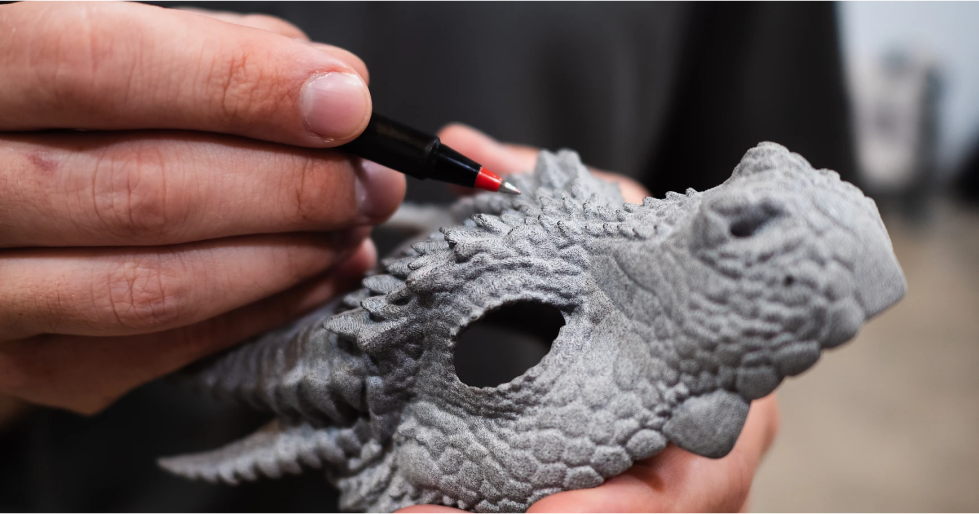
Looking Ahead
For Catalyst, the future looks busy and exciting: “It’s a rare and exciting opportunity to witness our customers build an entire theme park ride from the ground up, like Harry Potter or Pirates of the Caribbean. Being at the vanguard of such a project and contributing significantly has truly been a thrilling experience.” For Catalyst, that means more incredible animatronics and a partner like Fictiv because “Fictiv can build anything.”
Fictiv can build anything.
Brian Burns, Catalyst
